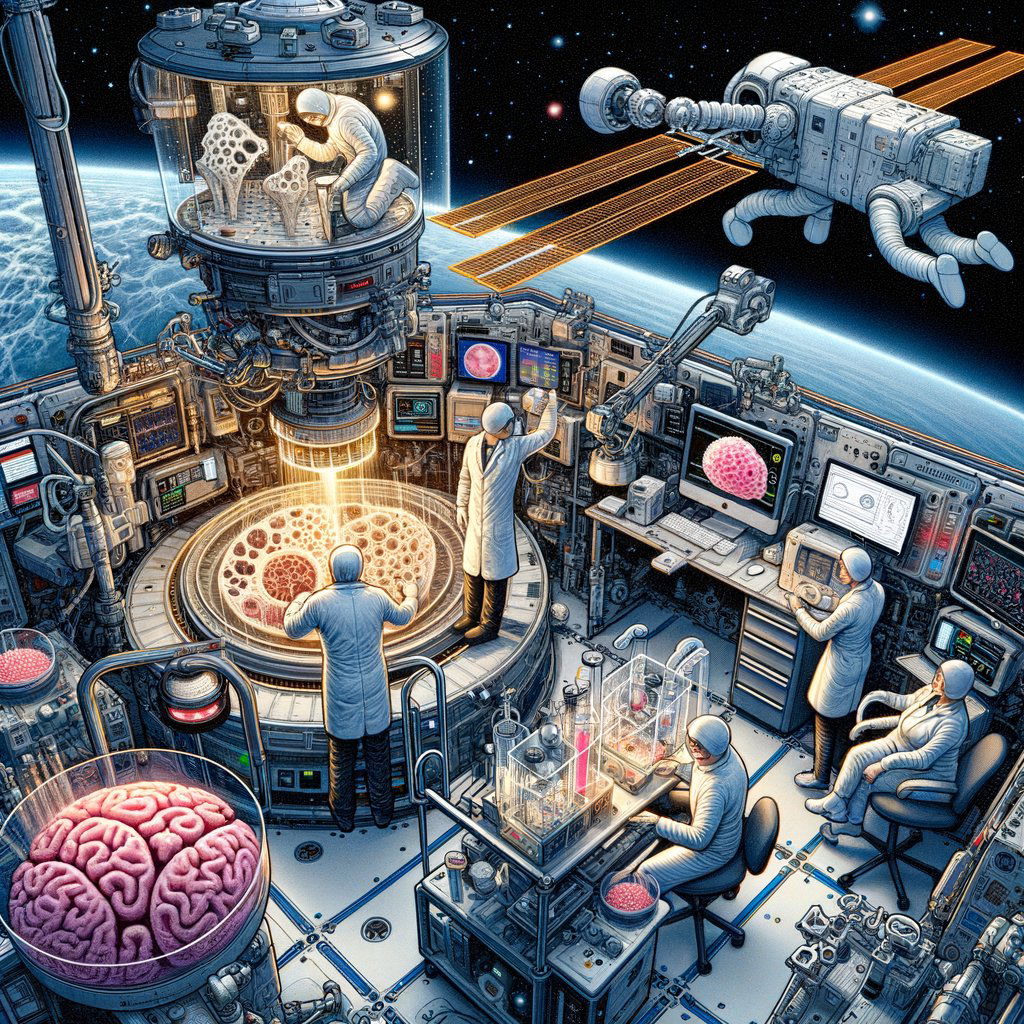Image created by AI
Pioneering Bioprinting in Space: A Leap Towards Long-term Space Healthcare and Regenerative Medicine
Recent studies conducted aboard the International Space Station (ISS) are revolutionizing bioprinting technologies, offering a glimpse of the future in healthcare, both in space and on Earth. Researchers have reached a pivotal milestone in the ability to fabricate complex biological tissues in a microgravity environment, a breakthrough that could dramatically affect the treatment of various conditions during long-term space missions and lead to advancements in regenerative medicine.
In the innovative experiments involving the 3D bioprinting of a meniscus, the BFF Meniscus-2 project used a specialized BioFabrication Facility to craft knee cartilage tissue using bioinks infused with living cells. The success of this endeavor marks the first anatomically shaped tissue engineered in orbit - an immense feat for space medicine. The microgravity conditions aboard the ISS allow for the creation of tissues without the risk of structural collapse common under Earth's gravity. This has strong implications for treating musculoskeletal injuries in space, where resource constraints make traditional medical solutions impractical.
Additionally, research into the growth of brain organoids in space - collections of central nervous system cells - demonstrated enhanced neuropathic development compared to those cultivated on Earth. Known as Cosmic Brain Organoids, this project sheds light on the rapid neuron maturation process in microgravity. These brain organoids were developed from neural stem cells of individuals with primary progressive multiple sclerosis and Parkinson's disease. The results are expected to deepen the understanding of these neurological conditions and expedite the development of novel treatments.
Another stride in space-based medical research comes from the Stellar Stem Cells Ax-2 study, which showed how induced pluripotent stem cells (iPSCs) could be manipulated using ordinary lab equipment and materials, even in a microgravity environment. iPSCs have the remarkable ability to morph into any cell or tissue type in the human body. Insights gained from generating and growing these cells in space could have substantial benefits for regenerative medicine. It will also potentially enable high-volume biomanufacturing of cellular therapies on future space missions, opening a new frontier for both the space industry and medical science.
Together, these studies not only suggest how we might handle health issues on long-duration spaceflights or settlement on other celestial bodies but also serve to unravel the complexities of human diseases on Earth, potentially ushering in a new era of treatments. This is particularly impactful considering the limiting factor of organ transplants is the shortage of donor organs.
Looking ahead, researchers plan to continue exploring the causes of accelerated neuron maturation and how microgravity can be harnessed to enhance the capabilities of regenerative therapies, whether they're deployed in outer space or our neighborhood hospitals.










